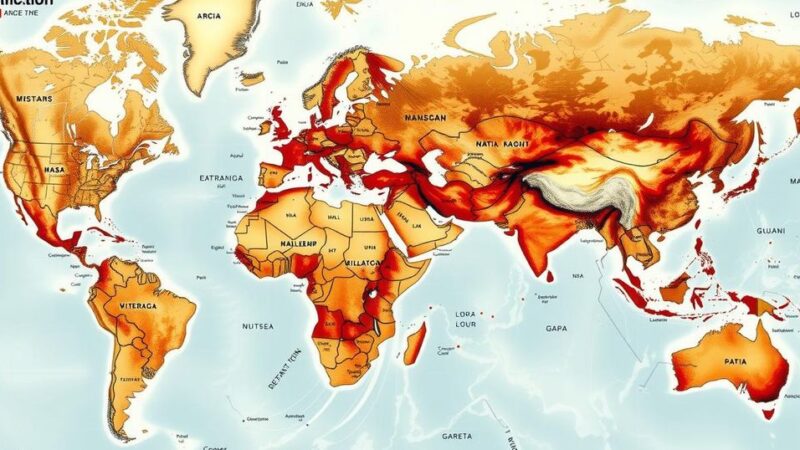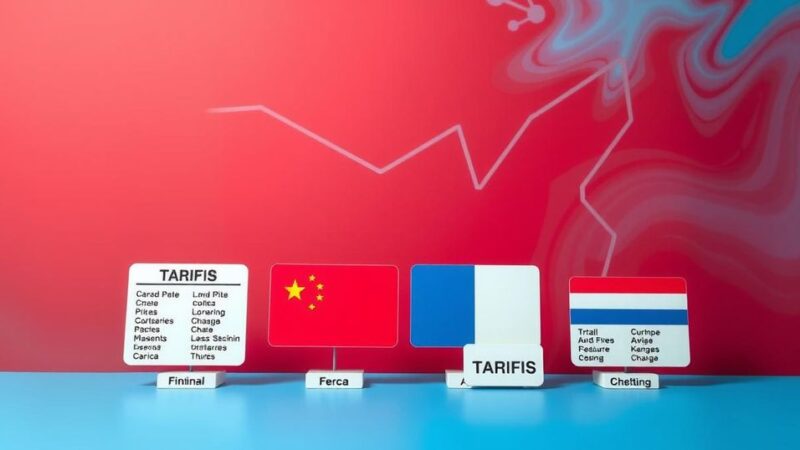The Trump administration is reportedly urging Lebanon to take swift action against Hezbollah, with threats of potential Israeli military operations if compliance is not met. This includes demands for the disarmament of militias and the initiation of diplomatic talks between Lebanon and Israel, alongside significant US military aid. The dynamics within Lebanon may shift following Hezbollah leader Hassan Nasrallah’s death, raising prospects for disarmament and peace negotiations.
In recent weeks, the Trump administration has reportedly communicated urgent messages to the Lebanese government regarding serious security concerns in southern Lebanon. American officials are allegedly demanding immediate and substantial progress in the relationship between Lebanon and Israel, with a tight deadline for achieving measurable outcomes. Sources indicate that President Trump expects results shortly, emphasizing the urgency of the situation.
A report from Al-Arabiya cited warnings from the Trump administration that if Lebanon does not fulfill its obligations to disarm militias like Hezbollah, large-scale Israeli military actions may be permitted in the region. This aligns with an earlier report suggesting that Trump had issued an ultimatum to the Lebanese government to take decisive military action against various militias within a month. Furthermore, Trump indicated that failure to comply might prompt the United States to advocate for United Nations intervention under Chapter 7 of the UN Charter.
Morgan Ortagus, Deputy Special Presidential Envoy for Middle East Peace, announced plans for the US to facilitate dedicated diplomatic discussions between Lebanon and Israel to resolve ongoing issues. The United States aims to establish working groups of diplomats to foster a peace process between the neighboring nations. In addition to diplomatic efforts, the US has approved $95 million in military aid to Lebanon, underlining the importance of bolstering Lebanese sovereignty as a pathway to stability in the region.
Experts have weighed in on the potential for Lebanon to confront Hezbollah. Professor Eyal Ziser from Tel Aviv University remarked on Trump’s resolve to establish peace in the Middle East and his ambition for Lebanon and Syria to align with the Abraham Accords. Patricia Karam from the Arab Center in Washington noted that the death of Hezbollah leader Hassan Nasrallah has shifted the perceived invincibility of the group, leading to calls for disarmament and accountability.
In another statement, Steve Witkoff expressed optimism about the future of Lebanon and Syria’s participation in the Abraham Accords, highlighting ongoing efforts to encourage normalization of relations. Despite the challenges these countries have faced, Witkoff believes significant changes are in progress, possibly paving the way for improved diplomatic ties in the region.
The Trump administration’s push for immediate action from Lebanon regarding Hezbollah reflects increased urgency in regional security matters. By demanding tangible progress and offering military aid, the US is advocating for a diplomatic resolution to tensions with Israel. Moreover, the removal of Hezbollah’s leadership may change internal dynamics within Lebanon, potentially leading to disarmament calls. Overall, the future of Lebanon’s relationship with both Israel and Hezbollah remains uncertain, yet it may be influenced by diplomatic efforts and geopolitical changes.
Original Source: www.jewishpress.com






